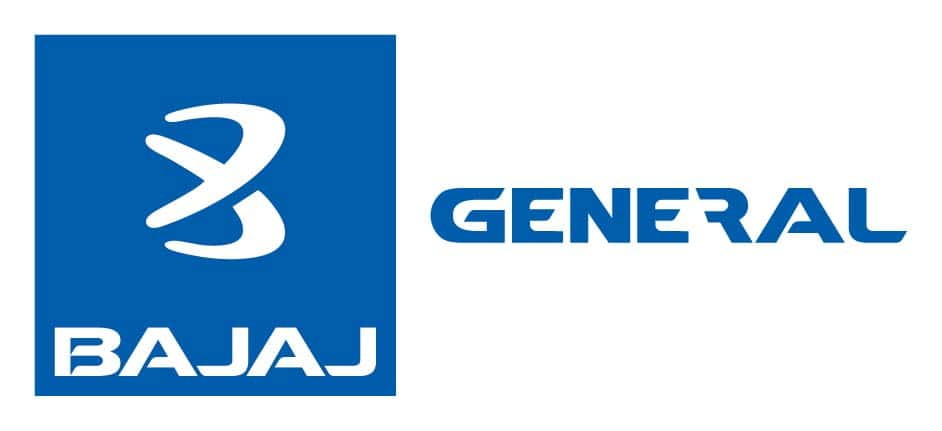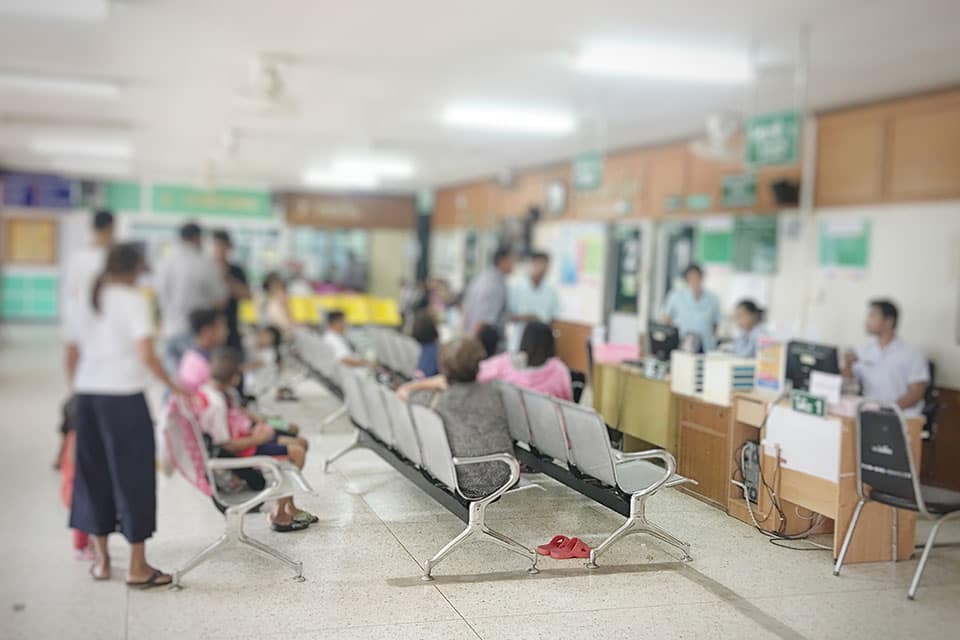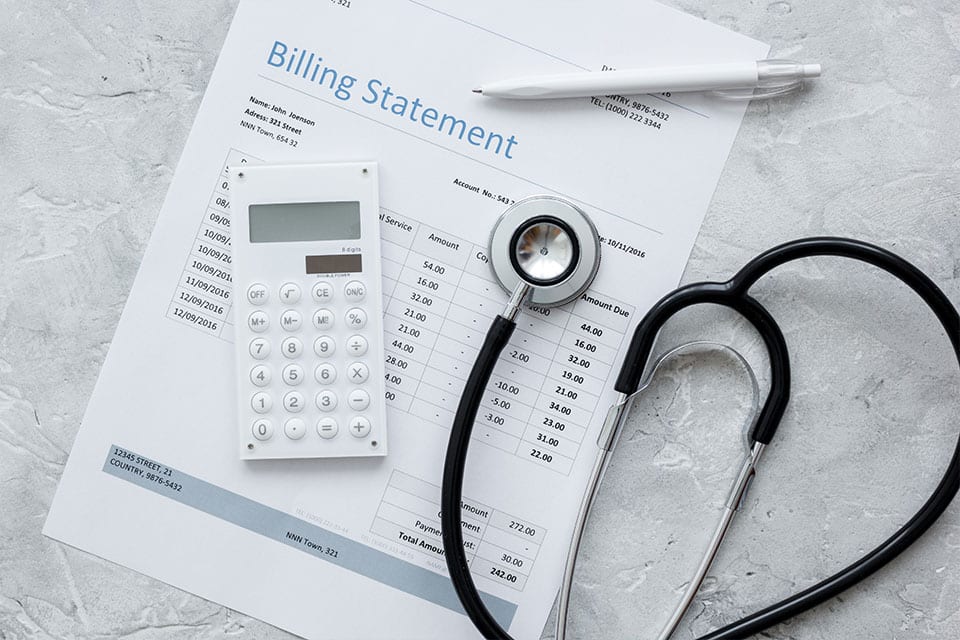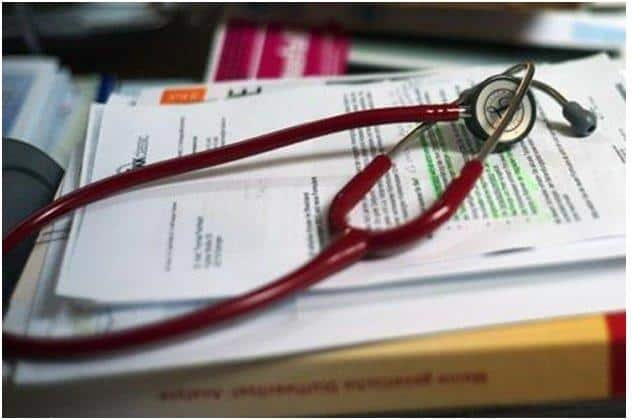What is Cashless Health Insurance?
Cashless Health Insurance refers to a mediclaim policy in which the insurance company settles the medical bills of the insured directly with the hospital. It provides cashless hospitalization facilities to the insured without paying upfront for the treatment obtained. A cashless health insurance policy helps the insured deal with medical emergencies efficiently by allowing them to focus only on the treatment while the insurer takes care of the hospitalization expenses.
Previously, cashless health insurance could be availed only at a network hospital of the insurance company. But with the cashless everywhere benefit, cashless treatments can be availed at any hospital across India, even if they are not on the insurer's network hospital list.
Types of Cashless Health Insurance in India
Broadly, there are four types of cashless health insurance plans in India. They are as follows:
-
Cashless Individual Health Insurance
Cashless individual health insurance allows only a single person covered in the policy to avail cashless treatments.
-
Cashless Family Health Insurance
Under the cashless family health insurance policy, the whole family of the policyholder can avail cashless treatment on a floater sum insured basis.
-
Cashless Senior Citizen Health Insurance
Cashless health insurance for senior citizens provides cashless coverage for hospitalization expenses, ambulance charges, and pre-existing diseases of people above 60 years old as per their health needs.
-
Cashless Maternity Health Insurance
Cashless maternity insurance plans allow the insured women to file cashless claims for pregnancy and childbirth-related expenses, along with their newborn baby's treatments and vaccinations.
Why is It Important to Have Cashless Health Insurance?
Cashless health insurance comes in handy during a medical emergency when the policyholder might be cash-strapped or not have immediate access to funds. At this time, arranging money or dealing with the hassles of bill reimbursement should be the last thing on their mind. A cashless insurance policy is designed to eliminate any financial roadblock that may delay the insured from availing medical treatments on time.
Moreover, cashless health insurance plans allow people to access the best quality medical treatment at top hospitals without worrying about arranging money to pay the bills.
How Cashless Health Insurance Works?
Under cashless health insurance, insurance companies directly negotiate with hospitals to cover the treatment costs of the insured. They tie up with some hospitals to provide cashless treatment to their policyholders, which are then known as the network hospitals of the insurance company. But with the cashless everywhere facility, the insured can avail cashless treatments at both network and non-network hospitals of the insurer.
When the insured gets hospitalized, they do not have to pay the hospital bill at the time of discharge. Instead, they must file a cashless claim at the time of hospitalization and get cashless treatment authorization from the insurer. Once discharged, the insurance company or their TPA (Third Party Administrator) will coordinate and settle the bill directly with the hospital.
Moreover, most health insurance companies now offer cashless OPD facilities to their policyholders. This means the insured does not need to be hospitalized for a minimum of 24 hours to avail cashless hospitalization services. They can avail outpatient treatments, consultations, diagnostic tests and medicines on a cashless basis.
Benefits of Cashless Health Insurance
Check out the key benefits of buying a cashless mediclaim policy:
- More Convenient – Cashless medical insurance is more convenient as the hassle of settling the hospital bill during discharge is taken care of by the insurance company.
- Immediate Access to Medical Care – By filing a cashless claim, the insured can avail emergency medical treatments on time, even if they do not have immediate access to funds.
- Access to Quality Treatment – With cashless health insurance, the insured can obtain the best-quality treatment at any hospital across the country without worrying about paying the bill upfront.
- No Extensive Documentation – Unlike reimbursement claims, cashless claims do not require policyholders to submit a long list of documents to claim their health insurance policy and get their money back. Instead, the TPA and the hospital take care of all documents required by the insurer.
- Pre-Approved Treatment – In case of planned hospitalizations, the insured can get approval for cashless treatment days before getting admitted to the hospital.
- Peace of Mind – Cashless insurance provides peace of mind to the insured while obtaining treatment, as they can rely on their insurer to settle the bills with the hospital.
- Stress-free Recovery – With cashless health insurance, the insured can focus only on recovery instead of worrying about paying the hospital bill.
- Financial Security – Cashless medical insurance provides financial security to the policyholder from sudden expenditures during a medical emergency.
How to File a Cashless Claim Under Health Insurance?
Policyholders can file cashless health insurance claims for emergency and planned hospitalizations. Take a look at the cashless claim process for both types of hospitalization:
Cashless Claims for Planned Hospitalization:
Planned hospitalizations occur when the policyholder knows beforehand that they need to get admitted to a hospital for a treatment/procedure in the next few days. In this case, they can choose a preferred hospital to avail cashless treatment. Follow the steps given below to file a cashless health insurance claim in case of a planned hospitalization:
Step 1: Call the toll-free number of the insurance company to inform them about your prospective hospitalization at least 48 hours in advance.
Step 2: Take your health card to the hospital and ask for a pre-authorization form at the insurance desk. You can also download it from the insurer's website.
Step 3: Submit your pre-authorization form at the insurance desk, which will be sent to the insurer or their TPA.
Step 4: The insurer/TPA will verify the details and either approve or reject your pre-authorization request.
Step 5: If your pre-authorization request is approved, the TPA/insurer will send an authorization letter mentioning the sanctioned amount for the cashless treatment.
Step 6: Obtain the treatment and sign all medical documents at the time of discharge.
The insurance company will settle the medical bill with the hospital.
Cashless Claims for Emergency Hospitalization:
Emergency hospitalizations are sudden hospitalizations that are not planned. Take a look at the procedure to file a cashless health insurance claim for an emergency hospitalization:
Step 1: In case of a medical emergency, you need immediate medical care. Therefore, you should inform the insurance company about your emergency hospitalization within 24 hours.
Step 2: Show your health card at the hospital, which will contain your policy number, the name of your insurance company and the type of health insurance policy you hold.
Step 3: Fill in the pre-authorization form and submit it to the hospital.
Step 4: The hospital will submit your pre-authorization form to the insurer/TPA for approval.
Step 5: The TPA/insurer will cross-check the details and approve or reject your cashless treatment request.
Step 6: If approved, obtain the treatment and sign all the documents during discharge.
The insurer will pay the hospital bills on your behalf.
Note: Most insurance companies in India process cashless claims within 2-3 hours.
What is Not Covered in Cashless Health Insurance?
Take a look at the medical expenses not covered by cashless health insurance plans:
- Non-medical expenses
- Cosmetic or plastic surgery
- Self-inflicted injuries
- Treatment for alcohol or drug addiction
- Non-accidental dental treatments
- Ambulance charges
Things to Keep in Mind While Filing a Cashless Health Insurance Claim
Here are a few things to keep in mind while filing a cashless health insurance claim:
- Cashless hospitalization facilities are available at both network and non-network hospitals with the cashless everywhere benefit.
- It is the hospital's responsibility to justify insured's treatment to the insurance company.
- Remember to keep a photocopy of all medical documents, including medical bills, lab reports, claim form and discharge papers, before leaving the hospital.
- Cashless insurance claims can also be rejected. Make sure the information provided in the pre-authorization form is correct and complete to prevent rejection by the TPA/insurer.
- Remember to carefully read all terms and conditions of the mediclaim policy to know what could lead to the denial of the cashless treatment.
- Pay the medical bills not covered by the health insurance policy at the time of hospital discharge.
- In case the medical bills exceed the sum insured, the policyholder will have to pay the excess amount out of pocket.
- Not all medical expenses are covered under cashless health insurance, depending on the policy terms and conditions.
Difference Between Cashless Claims and Reimbursement Claims
Check out the key differences between cashless and reimbursement claims below:
| Categories |
Cashless Claims |
Reimbursement Claims |
| Claim Process |
In cashless claims, the insurance company settles the medical bill directly with the hospital. |
In reimbursement claims, the policyholder needs to settle the medical bill with the hospital and later file for a reimbursement with the insurer. |
| Bill Payment |
Payment of hospital bill is not required |
Payment of hospital bill is required at the time of discharge |
| Documentation |
Minimal paperwork involved, mainly health card and pre-authorization form |
Detailed documentation required, including doctor consultation papers, hospital bills & payment receipts and claim forms |
| Approval |
Pre-authorization is required for cashless treatment |
No pre-authorization is required for reimbursement claims |
| Convenience During Medical Emergencies |
More convenient |
Less convenient |
| Claim Processing Time |
Faster processing of claims, typically within a couple of hours |
Takes a longer time in processing claims, usually up to a week |
Top Reasons for Claim Rejection in a Cashless Mediclaim Policy
Given below are some of the top reasons for cashless health insurance claim rejection:
- Exclusions - If the illness/procedure for which the insured has been hospitalized is not covered by the cashless insurance policy.
- Sum Insured Exhaustion - If the policyholder has exhausted the entire sum insured for the given policy tenure before filing a cashless claim.
- Waiting Period - If the claim was filed during the waiting period.
- Undisclosed PED - If the pre-existing diseases (PED) of the insured were not disclosed at the time of policy purchase.
- Insufficient Information - If the information given in the pre-authorization form is insufficient to approve the claim.
- Incomplete Details on PED - If the information provided on the pre-existing ailment is insufficient in the pre-authorization form.
- Delayed Intimation - Delay in intimating the TPA/insurer about emergency or planned hospitalization.
- Incorrect Information - If incorrect information is provided by the policyholder to the insurer.
- Expired Policy - If the cashless mediclaim policy has expired before filing the cashless claim.
Note: According to a Bombay High Court ruling, the decision to reject or partially disallow health insurance claims can be taken only by insurance companies and not by TPAs who offer various services to policyholders on their behalf.
How to Avoid Cashless Health Insurance Claim Rejections?
Check out some essential tips to avoid rejection of cashless health insurance claims:
- Make sure to disclose pre-existing diseases to the insurance company at the time of policy purchase.
- Inform the insurer about planned or emergency hospitalization within the speculated timeframe.
- Provide factual and complete information about the disease/medical condition in the pre-authorization form.
- Check the waiting period applicable to the mediclaim policy carefully before filing a cashless claim.
- Read the policy terms and conditions carefully to know what the cashless insurance policy covers and does not cover.
- Make sure to renew the cashless medical insurance policy on time to avoid it from getting lapsed.
How Can Policybazaar Help to Choose a Cashless Health Insurance Policy?
By allowing people to compare various medical insurance plans online, Policybazaar offers the best assistance in finding the right cashless health insurance plan. By entering basic details like name, age, medical history, etc., on Policybazaar.com, policyholders can get mediclaim quotes free of cost. Moreover, they can compare health policies from various insurance providers at Policybazaar.com and ensure the right coverage for themselves and their families.
Moreover, people can reach out to insurance experts at Policybazaar.com to understand various health insurance terminologies and select the most suitable plan for themselves. In fact, these experts can also pay a home visit to simplify the entire policy-buying process.
Cashless Health Insurance: FAQs
-
Q1. Can I avail cashless treatment at any hospital?
Ans: Yes. You can avail cashless treatment under your health insurance policy at any hospital with the cashless everywhere benefit.
-
Q2. Which is the best cashless health insurance?
Ans: You can compare multiple cashless health insurance plans online on Policybazaar.com based on your health needs and budget to find the most ideal policy for yourself.
-
Q3. What is the new rule for cashless medical insurance?
Ans: The new rule for cashless medical insurance allows the insured to avail cashless treatment at any hospital across India, regardless of it being a network hospital or not.
-
Q4. What is the time period for cashless health insurance?
Ans: The time period to initiate a cashless health insurance claim is 48 hours for an emergency hospitalization and at least 48 hours before a planned hospitalization.
-
Q5. Is cashless health insurance good or bad?
Ans: It is good to have a cashless health insurance policy as it saves you from the hassle of paying hospital bills upfront and helps you to focus only on your recovery.
-
Q6. Where can I get the cashless health insurance hospital list?
Ans: You can contact the customer care of your insurance company and enquire about the nearest network hospital to avail cashless treatment. You can also visit Policybazaar.com or the website of the insurance company to locate the network hospital in your neighbourhood.
-
Q7. Do cashless health insurance plans cover OPD treatment?
Ans: Yes. Several health insurance plans offer cashless coverage for OPD treatment, provided it is being taken at a network provider of the insurance company.
-
Q8. Do I need to inform my insurance company about my planned cashless hospitalization?
Ans: Yes. All health insurance companies require you to inform them about your planned cashless hospitalization at least 48 hours before getting admitted to the hospital.
-
Q9. Can I avail tax benefits under cashless health insurance?
Ans: Yes. You can avail tax benefits under your cashless health insurance policy as per Section 80D of the Income Tax Act.
-
Q10. Is cashless claim good?
Ans: Yes. Cashless claims are a good choice as they allow you to avail cashless treatment at all hospitals across India.
-
Q11. How to claim cashless insurance?
Ans: You can claim cashless insurance by informing the insurer about your hospital admission at least 48 hours before a planned treatment and within 24 hours of an emergency hospitalization. Fill up and submit your pre-authorization form to the hospital to get cashless treatment approval from the insurer. Once approved, obtain the treatment and pay the bills not covered by your policy. The insurance company will pay the bill amount to the hospital.
-
Q12. Are cashless claims cleared in 3 hours?
Ans: Yes. Cashless claims are cleared within 3 hours by insurance companies as per IRDAI guidelines.
-
Q13. Can cashless claim be rejected?
Ans: Yes. Cashless claims can be rejected in case of incomplete documentation, non-disclosure of PEDs, delayed intimation to the insurer or if the disease is excluded in the policy.
-
Q14. What if a cashless claim is rejected?
Ans: If your cashless claim has been rejected, pay the entire hospital bill and collect all the medical documents during discharge. Now file a reimbursement claim with your insurer by submitting the required documents.
-
Q15. Can a hospital deny cashless treatment?
Ans: A hospital cannot deny cashless treatment under the cashless everywhere initiative, provided all procedures are followed.
Health insurance companies
View more insurers
Disclaimer: The list mentioned is according to the alphabetical order of the insurance companies. Policybazaar does not endorse, rate or recommend any particular insurer or insurance product offered by any insurer. For complete list of insurers in India refer to the Insurance Regulatory and Development Authority of India website www.irdai.gov.in








































